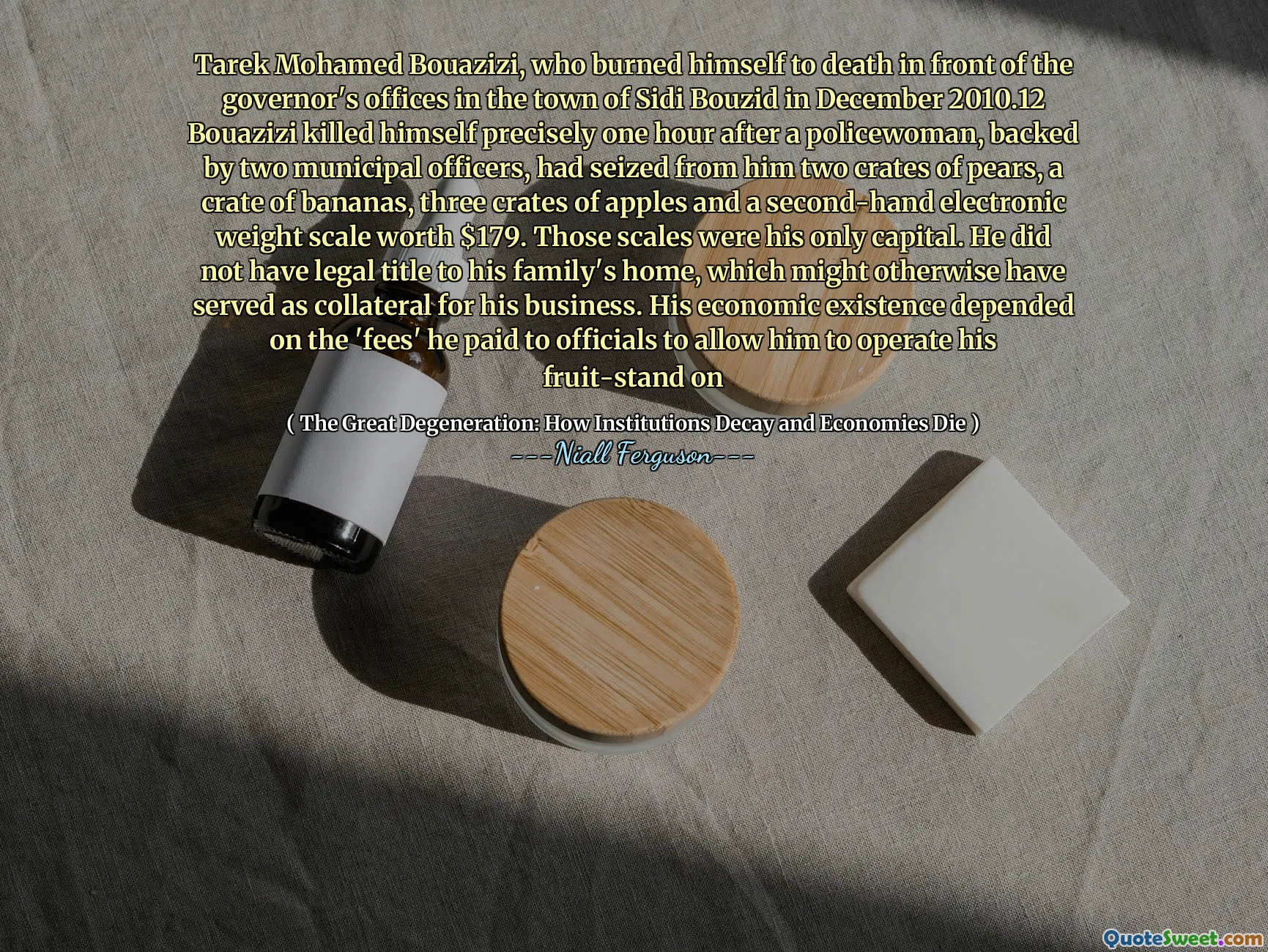
Tarek Mohamed Bouazizi, who burned himself to death in front of the governor's offices in the town of Sidi Bouzid in December 2010.12 Bouazizi killed himself precisely one hour after a policewoman, backed by two municipal officers, had seized from him two crates of pears, a crate of bananas, three crates of apples and a second-hand electronic weight scale worth $179. Those scales were his only capital. He did not have legal title to his family's home, which might otherwise have served as collateral for his business. His economic existence depended on the 'fees' he paid to officials to allow him to operate his fruit-stand on
Tarek Mohamed Bouazizi's tragic act of self-immolation in December 2010 was a desperate response to the humiliation and loss he faced. After a policewoman confiscated his goods, including fruit and a weighing scale, Bouazizi found himself stripped of his livelihood. This incident was not just a personal tragedy but a reflection of the broader struggles faced by individuals in oppressive bureaucracies, where corruption and arbitrary power thrived.
Bouazizi's situation highlights the precariousness of life for many in similar circumstances, where personal assets and economic stability can vanish due to official misconduct. Lacking legal ownership of his home left him without means to secure financial support, emphasizing how deeply intertwined governance and individual survival are. His death sparked significant social unrest, igniting a movement that questioned the very institutions that failed people like him.











